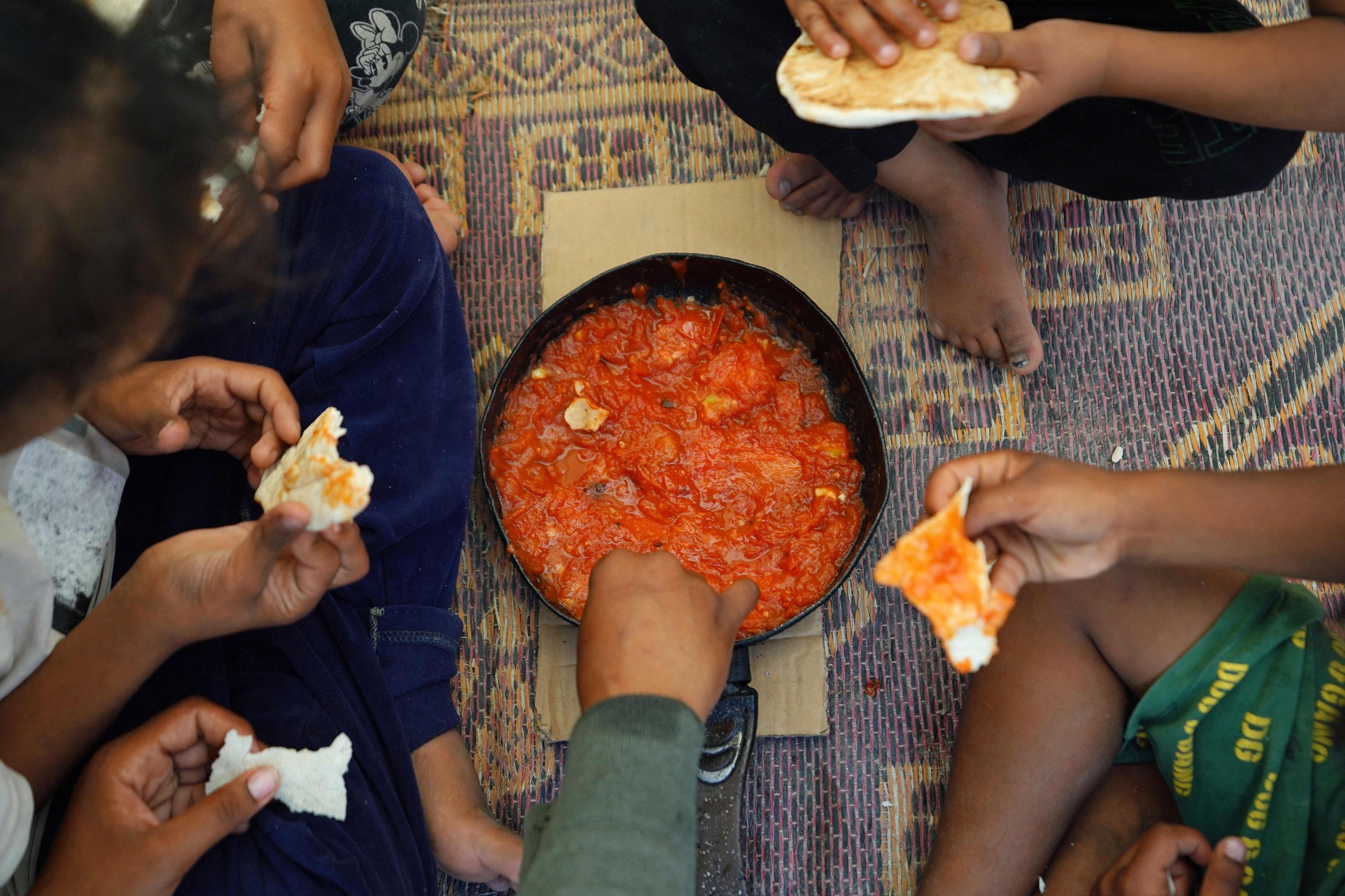© Turkuvaz Haberleşme ve Yayıncılık 2024
Gazan children are bearing the brunt of hunger in the Palestinian territory with nearly 10,000 suffering from different levels of malnutrition.
Amira al-Taweel scoured pharmacies in northern Gaza for milk to feed her child, but could not find a single bottle to satisfy his hunger.
"Youssef needs treatment and milk, but there's none available in Gaza," the 33-year-old mother told AFP at Al-Aqsa Martyrs hospital in central Gaza where her son was admitted suffering from malnutrition.
"I feed him, but no milk as it's not available. I feed him wheat (flour) which makes him bloated," she said, as Youssef lay on a narrow bed, his frail body receiving desperately needed medication through intravenous tubes in his feet.
The Gazan media office said that at least 32 people, many of them children, have died of malnutrition in Gaza since Israel launched its brutal war on Oct. 7 following a Hamas incursion.
That attack resulted in the deaths of 1,189 people in Israel, according to an AFP tally based on official Israeli figures.
Since then Israel's military campaign has killed 36,439 people in Gaza, also mostly civilians, according to the Health Ministry.
But aid agencies warn that the situation is even worse when it comes to children.
On Saturday, the World Health Organization said that more than four in five children had gone a whole day without eating at least once in 72 hours.
"Children are starving," WHO spokeswoman Margaret Harris said in a statement.
The rise in malnutrition among Gaza's children is largely a result of humanitarian aid that enters the Palestinian territory not reaching its intended destination, aid agencies said.

Since mid-January, the U.N. humanitarian agency OCHA has screened more than 93,400 children under 5 in Gaza for malnutrition, including 7,280 who were found to be acutely malnourished.
Malnutrition is particularly prevalent in northern Gaza, which received little aid in the early months of the war.
Only in recent weeks has much of the food aid been diverted through new crossings after aid agencies warned of imminent famine.
The Israeli military said Sunday that a total of 1,858 trucks of aid were inspected and sent into Gaza this week through its Kerem Shalom and Erez West crossings, including 764 from Egypt.
At Al-Aqsa Martyrs hospital, mothers were concerned about their malnourished children.
After Youssef and another baby boy, Saif, were admitted, their mothers sat next to them, worrying about how long they could survive on the food the hospital provides.
"We depend on the aid that comes here and is given to the children," said Noha al-Khaldi, mother of Saif, whose skin was stretched over protruding bones.
"All night long he suffers ... He was supposed to have an operation, but it was postponed."
Hazem Mostafa, a pediatrician at the hospital, blamed the closure of the Rafah crossing in the south for the worsening situation.
The crossing is the main conduit for aid into Gaza from neighboring Egypt, but Israeli forces seized control of it on May 7.
Since then, no aid has entered the territory through the crossing and no sick or wounded patients have been able to leave for treatment in Egypt.
Cases of malnutrition among children in Rafah have also emerged in recent days, with several babies being treated for it in health care centers, AFP correspondents reported.
"The occupation (Israel) has prevented the entry of food, particularly milk, for children, which has led to serious weakness in the body, very poor growth and infection by numerous diseases," Dr. Mostafa told AFP as he studied a patient's X-ray in his office.
"We demand an abundant supply of milk so that mothers can feed their children to keep them healthy."
